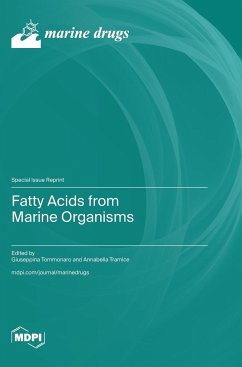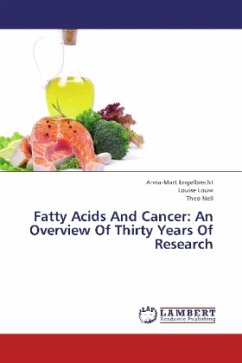Fatty acids (FAs) are considered very important biomolecules because they have been used as trophic biomarkers in the marine food chain analysis of several ecological niches. They are compounds universally present in all organisms and play very important biological roles, such as acting as building blocks in biological membranes and signaling molecules. A great number of different fatty acids (saturated, mono- and di-unsaturated, branched, halogenated, hydroxylated, and methoxylated), as well as the major polyunsaturated fatty acids (PUFAs) such as eicosapentaenoic (EPA) and docosahexaenoic (DHA) acids, occur in marine organisms. In addition, marine organisms are a rich source of metabolites with unusual structures that often exhibit interesting pharmacological properties. Moreover, it is worth emphasizing that the nutritional value of fish and marine invertebrates directly depends on their lipid composition and, in particular, their fatty acid profile, and this represents the basis of the trade of most international marine products. For this Special Issue, we invited academic and industry scientists to submit reviews and original research articles focusing on the chemistry, biological roles, and bioactivities of fatty acids from marine organisms.
Hinweis: Dieser Artikel kann nur an eine deutsche Lieferadresse ausgeliefert werden.
Hinweis: Dieser Artikel kann nur an eine deutsche Lieferadresse ausgeliefert werden.








